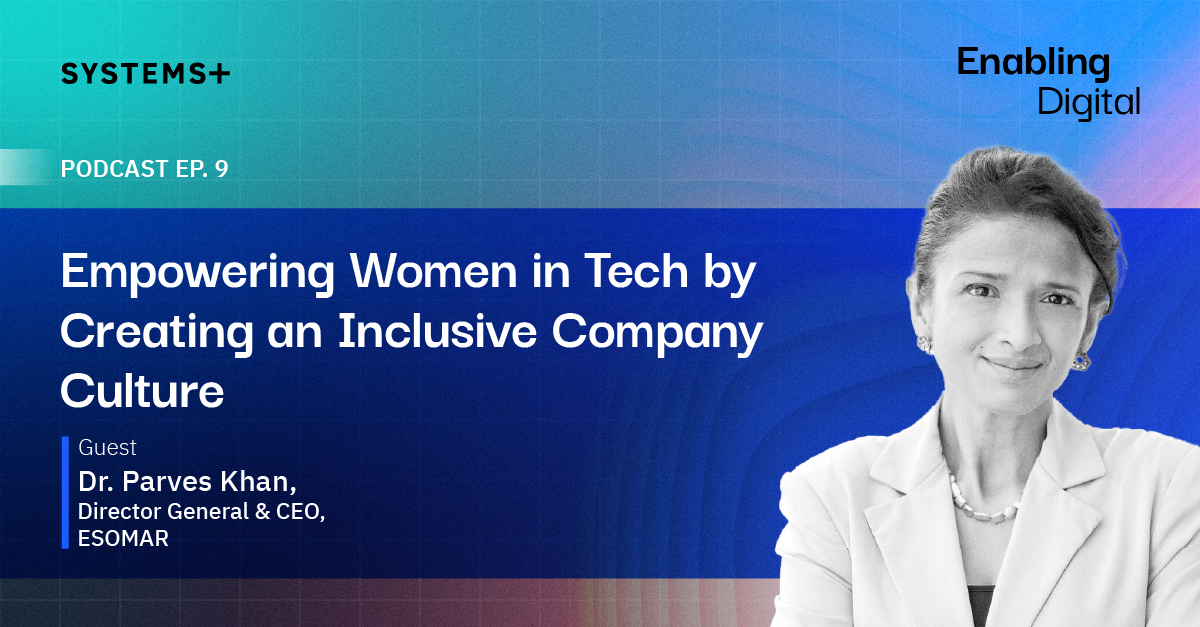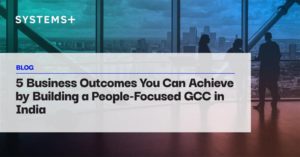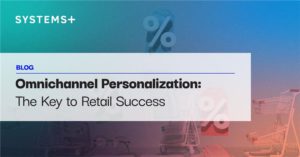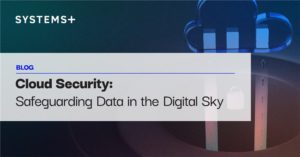Sapan Choksi 00.00
Welcome, everyone. Welcome to another edition of enabling digital a Systems-plus podcast series. Today we're going to focus on women in tech, and therefore it gives me immense pleasure to welcome Dr. Parves Khan. She's the Director General and CEO of ESOMAR. Dr. Khan is an insight leader, with a strong track record of transforming research functions into Insight powerhouses. With a strong passion for bringing data to life, delivering high-quality outputs, driving up team performance, and engaging with stakeholders, she's able to effectively create actionable insights needed to drive business growth for the world's leading companies. Dr. Khan, thank you so much for joining us, it's great to have you here.
Dr. Parves Khan 01.20
Thank you, it's a real pleasure.
Sapan Choksi 01.24
Fantastic. So let's dive right into it. I read about your journey of how you grew up in a poor immigrant community in the UK, with a very, you know, no major scope, for a strong career, etc. But you’ve sort of gone through that you've broken the glass ceiling, etc. So tell us a little bit about your journey. And, and also, you know, I found, you know, while I was reading a little bit more about you, and, and going through some of your other recordings, etc, you know, you always had this passion for analyzing, interpreting data. And that's sort of what got you to where you are. So I just like love to learn more about that. And our listeners would love to sort of hear more about that, especially women who are trying to make, you know, trying to break through that glass ceiling.
Dr. Parves Khan 02.09
Absolutely. I mean, the quality that you need in my profession, which is all about really analyzing data is a deep curiosity, you know, you'd need to be so inquisitive. And I've always had that as a child, I was always curious about everything about how the world worked, how people worked. And my original passion was, of course, to become a lawyer, if you have read my background, but, you know, poor kids, like me, just didn't do law. I mean, we didn't have the privilege of a middle-class family, and the resources to go and study law. But I had this sort of fire in my belly always that I wanted to do something purposeful in my life. And so contrary to expectations, I did go and do well in high school, and I did well with my qualifications. And I then went on to university and I got a grant from the government. So it paid for my university, my tuition, and my living expenses, and then I managed to be fortunate enough to get a Ph.D. and study human behavior in more detail. I mean, that was something that drove me to try and understand why people behave the way they did. In that context, it was all about political decision making, you know, like, I was looking at the creation of the European Union back in the 1990s, and how the issues of national sovereignty played out in discourse and how nationalism, was almost been overtaken by very xenophobic and almost racist type of language around the time, which, interestingly, is always topical, isn't it? There are always issues around refugees and immigrants and how they're coming over and beans. Recently in the UK, we've had some awful language about being swamped by an influx of refugees, which is complete and utter rubbish. But it's a very damaging, you know, type of narrative. But anyway, to cut the story short, I ended up going to work for a number of big brands. And I've always had a deep fascination with technology. Technology, at the end of the day, is responsible for really accelerating the pace of change in our lives, and it touches every aspect of our lives, the way we work, the way we live, and the way we socialize. It's quite remarkable. And in my industry, data research insights, you know, we look at market and customer research and data analytics and we use that to help businesses better understand their consumers and their would-be customers. We've seen a radical transformation, just over the last decade in how we gather, store, and analyze data and how we better understand customer experiences, behaviors, and actions. And a key driver of that has been data processing technologies and data, text, and data, web mining technologies, which of course, continue to advance with artificial intelligence-based engines and cloud computing. And, you know, I'd be remiss not to talk about the power of generative and conversational AI tools big like chat GBT, which everybody is talking about right now, maybe for our industry is a real game changer. Now, while also I mean in all of these technologies, I appreciate the power they provide, and how they can help us streamline processes and get to understand customers at a more agile and much faster speed. There's a big but you know, and that is I've always, I've also sorry, seen how the value that we can leverage from these emerging technologies. So that can be limited. We don't also apply the enormous effort that's needed to work on the data itself. Yeah, because data can't speak for itself. And what I've experienced in my sort of last decade, particularly, is that we've become great at mining data. And we've, you know, we use tons of metrics, we have fabulous dashboards, but we've got poorer, at analyzing what all of that data means. And I always say to people, the challenge isn't being data-driven. The challenge is being insight-driven. Because with insight, you have to interpret that data in a really meaningful way, you kind of need to speak for the facts. And that means you have to, you know, have a business head, you need to apply that business acumen and wrap up that understanding of that data into commercially framed options, have recommendations to help your company grow your stakeholder grow. If you're on the agency side, that's the tough part. And I think that's where professionals like me come into play, you know, where like data translators, we help companies understand their data better. And we use technology as an enabler, but technology itself can't replace that need for human judgment and human interpretation.
Sapan Choksi 07.35
Absolutely. And you're right. And you touched on chat GPT. And I know, you have done multiple talks around the metaverse. This is now the leading edge of technology. In your opinion, what are sort of the parallels that you can draw in terms of what we saw, you know, about 20 years ago, and how technology was changing and the whole dot com bubble And to moving into what we are seeing today between the chat GPT and the metaverse in terms of how that's transforming the tech industry and what role the whole data aspect has to play into that because, as you said, data on its own can’t speak for itself. And somebody needs to be able to explain it. Yeah. But these new sorts of ways of the future. You know, it's becoming more and more difficult to figure out who's speaking.
Dr. Parves Khan 08.34
Yeah, absolutely. Well, there, there are a couple of things to unwrap here. First of all, there's the regulatory sort of framework, and we won't, we won't ethical, responsible technologies. And we need regulation to make sure that's happened in that consumers are not being exploited in any way. And that data isn't been gated in a way that only the big business has access to the data and others are somehow disenfranchised and marginalized because they don't have access. So you know, and that reduces competition, for example, so we need to create these level playing fields. Now, that's an interesting story about data regulation, sorry, because things like GDPR were created for filing cabinets. It wasn't designed for the internet, and it certainly wasn't designed for social media. And it's always been on the backfoot regulation has always been on the back foot. So it can't, it can't keep up with the pace of change. You know, these technologies Chat GPT, I mean that took like six months to produce. Technology is always going to, you know, Out Run, you know, the regulation. So this is where we need to ensure that there's an element of self-regulation in the industry, we need developers and creators to create some kind of code of ethics themselves that they're adhering to. So that we can trust them that we can trust their intent. And we can also trust the veracity of the data they're using to train their large language models. So that trust piece is a huge issue right now. I would love it to be regulated, for example, because I represent ESOMAR. We're Industry Association, of course, we want good regulation. But we don't want regulation to stifle innovation either. So it's striking that balance, and that's not easy. So maybe self-regulation is the way to go. But some people will argue that that won't be enough. Because many companies out there will be looking to make a profit, and that's going to be their main driver. So there's a conversation to be had about regulation. The other conversation to be had is every time there is a new AI application out there, there is a conversation about whether it's going to displace jobs. We've been here many times before, you know, is automation going to replace jobs? And in many ways, it has I mean, these new enterprise-level data systems mean that we don't need as many business intelligence analysts, for example, we can now automate that, you know, we can simply buy an enterprise solution can do that work for us. Likewise, with Chat GBT given that it can create great content and do a lot of that discovery research, you can even do segmentation for you. It can help you develop a brand strategy. I mean, it's the things that can do, it is inevitably going to have an impact on the creative industry, the data analytics industry, the market, and the consumer research industry, inevitably cynic is going to happen. Now, some people predict within 10 years, we're going to see a 50% reduction in the workforce, others will go so far as to say this is going to happen within five years. And that's a conversation that industry bodies like ESOMAR need to have, we need to understand the implications on our jobs. It could be that it creates do types of jobs, that we now have the ability to invest more time on the creative aspects of our discipline, rather than doing all the sort of boring, you know, sort of desktop research, which we can get an AI bot to do we can focus more on, what is this research telling me? How can I help my clients get that competitive advantage, because now I'm freed up I have more time to think about the analysis, I'd have the data rather than focusing on just curating all that information, because that takes time in itself. So these are some of the complex, really difficult, challenging issues that we're facing right now.
Sapan Choksi 13.18
Right, And of course, there's no clear answer. But if you look at any sort of a trend, historical trend, usually, you know, technology or any innovation displaces something, but it creates it typically it creates more jobs or more opportunity, etc.
Dr. Parves Khan 13.43
Yeah or it creates new types of jobs and the issue is, is rescaling upskilling people who have been displaced into these new jobs and whether that's easy, you know, because otherwise, that's where you get those disparities emerge in society, where those people simply cannot find new roles that they can do.
Sapan Choksi 14.04
Absolutely. Speaking of ESOMAR. So I want to understand a little bit about how you sort of got there and the challenges you face as a woman of, you know, how sort of take on that role itself.
Dr. Parves Khan 14.18
Yeah, yeah, sure. Absolutely. Well, I mean, it's nearly a year. I mean, it'd be a year in July that I've been at the helm of ESOMAR. And it's been looking like a fast learning curve. I'm not going to lie. I you know, it's been one of those sorts of situations in life. It's trial and error. You know, you have sort of been thrown into the deep end, but it was a challenge that I was very much willing to take. Now we don't do research. We represent the industry. So we represent the companies and the professionals that make up the industry. We have something like 750 companies, About 12,000 subscribed members. But when we add up all the people who were engaging regularly, we're talking about nearly 40,000 or more professionals. And we represent an industry worth $120 billion. I mean, it's, it's a big industry, and it's growing exponentially. And we provide things like training, events, and professional networking, for our, for our members. Now, what I've been doing since I've been here is I've been harnessing technology to build an operationally resilient ESOMAR. You know, I think it's critical that we strengthen our digital backbone so that we can be more nimble, more efficient, and more agile. And I've done that by, you know, using a lot of new technologies and working with new providers in the field, to help us develop our tech stack, you know, we've just, we've just been recently looking at our CRM system, making sure that we're capturing data across all our customer touchpoints. And the other thing I want to do, so that case, look at all these new emerging disciplines in our industry, we're now increasingly seeing more data scientists who need to learn storytelling skills, who need to be able to do great visualization of all of that data. And who needs to create a narrative that their stakeholders understand. And they're looking for training, they're looking for a platform that's going to help them do that. That's the kind of thing that ESOMAR does. So we certainly want to, you know, embrace these new verticals that we describe as new verticals that are sort of emerging in our sector because we're no longer that traditional market research space we were 75 years ago when we first launched. Now, these days are all about Mar-tech. So we call that marketing technology it is all about research tech. And, you know, it's all about data as a service. So we’re working hard, or at least I'm working hard to bring these new companies into the ESOMAR family. And I'm wanting to also showcase how data and data analytics is helping to solve humanitarian issues around the world like poverty, health, human rights, climate change, education, you know, if you take digital skills, for example, in a country like Kenya, where we recently be working on and we've got a Leadership Summit coming up in July, is, we are looking at how data can be used to flag the disparities we're seeing in digital skills between men and women and girls. And Kenya, particularly Nairobi, is Savannah, you know their, silicon version of, of, you know, the tech hubs, you know, Nairobi is growing. But it has an acute shortage of digital skills, like cybersecurity, for example. And women are getting left behind. And so we're looking at drawing on our profession, to map the skill needs of today and the future in a country like Kenya. And we're sort of working with data and research companies there to showcase of fantastic work they're doing. So those are some of the initiatives I'm involved in. One thing I should add is, no leader is an island. You know, you need a team, you need a smart team, who have got the abilities to support you, but also who have the same desires and the same drive as you, you know, you need that team. So one of the things I've been doing is getting that team on board, developing those mutual goals, and making sure that they're on the same journey with me and taking ownership of those goals, and that they have the tools and resources to set them up for success. And that's been a key focus of mine as well.
Sapan Choksi 19.20
That's fantastic. Also, I'm glad you brought up the whole gender diversity issues and the gaps fundamentally, in Nairobi, we're talking about I know you've seen things globally. Do you see the gap sort of gap in tech, especially wider, developing countries, or is it you see across the board? And sort of what are your thoughts on how to address them? How can companies address them? Because I'll tell you where I'm coming from. It's not only about I can understand the cultural aspects, but I think women are just much more efficient in work.
Dr. Parves Khan 20.06
Yeah, it’s a fact of research you're absolutely right.
Sapan Choksi 20.08
I mean, how do I women convince the women to come in and get there, right? Because I'm telling you, this is one of the biggest gaps that I see seeing that. So many things. They're not getting the opportunities.
Dr. Parves Khan 20.20
No, that's right. And the statistics are quite somber and very sobering. Unfortunately, I can talk more authoritatively about the EU, because that's kind of where I'm based. I mean, ICMR is in Amsterdam. And I'll share with you some statistics, which come from Eurostar, which is a very authoritative source, it collects all sorts of statistics across a number of metrics. But in the European Union, only 22% of tech roles are occupied by women. Only 22 Only a fifth. I mean, that's appalling. And in the Netherlands, where I'm based, it's only 18%. Yeah, and I mean, in the UK, it's about 20%. Now, we look at the figures globally. And I got some figures from the UN, but show that 25% of women in technology firms are women, 25%, globally, and of AI professionals again, it's only about a fifth of women globally and then we look at leadership and the statistics get even more depressing. Unfortunately, if we look at global statistics across tech companies, only 17% of women are in leadership roles. So that says something's not right there and then I thought, well, let's take a deep dive into specific roles that women are doing in tech. And I found some stats again, in the European context. And again, it just happens to be, we have more data for Europe than we do globally, you can imagine just how difficult it is to map this across many 1000s of 1000s of companies, but in the EU, they're pretty good at doing that. And you'll find that even within that 22% I mentioned earlier of women in tech roles. When we look at job roles, what we find is that women are more heavily concentrated in things like product design and management. So for example, 46% of wibit 40% 46% of roles in product design and management are women. 54% are men. And then you look at data engineering and data science there, you find that 30% are women, 70% are men, so still more men, but you find more women in those particular job roles. But then you look at things like Cloud engineering, and they're only 8 to 10% are women. And now these are the ones that are the high-end, highly specialized, highly paid roles, only 8 to 10% of women. Now that that's not right, something's not right there. And, you know, a lot of research shows that not only do we need to invest in women to plug acute skill gaps in tech, because companies are really struggling to fill these job roles, and particularly in Europe, because of course, you're no big being based in India in the US were having to source a lot of these skill sets from overseas. But the other thing to say is, it is economically advantageous for companies and economies to have more women, more women in leadership equals better profit. I mean, you know, the research shows that it's I'm not just making this up. There's plenty of research to show this. And one example of research is a study that's done by Credit Suisse, where they do this survey, and they do this every few years. The last one was in 2019, where they surveyed 30,000 senior executives across 3000 companies. And that was across 56 companies. So it's a big study, to look at women in senior leadership. And what it found is generally about 17% of these companies had women in senior management positions. And then it looked at the economic growth of these companies and track them across several financial metrics like share price, EBITDA, a return on capital, and it tracked these businesses over time. And it found a significant thing, which it describes as this sort of premium, this sort of diversity premium, they describe it as diversity of premium is that companies that had really interesting companies that had 30% or more women in senior management outperformed those that had fewer. And it seemed to be that you had to get at least 30% for that company to see this significant financial difference between companies that had fewer than that, particularly companies that had only 10% or less or worse off financially, you know, their profit margins, their share price, or would be going down over the period in which this study was done, which is fascinating. Absolutely fascinating. So although we can't ever prove a causal relationship, I think there is a strong correlation of, you know, of this, this economic imperative. Why might that be? Why might companies do better, financially having more women, I think it just goes back to this issue around diversity, we need to bring in diversity of views in decision-making. And it's not just women, we need to be diversity of views from all sorts of other areas, you know, other underrepresented groups like marginalized ethnic minorities, for example. But women, I think, perhaps because they've experienced greater hardship. This is my theory anyway, that they've experienced greater hardship in rising to senior leadership is that they're more pragmatic. And I think they're more grounded. And that is important for companies when they're looking to grow. You know, that sort of pragmatism is really important. When you're making really serious decisions, really tough decisions about restructuring or making very tough decisions about, you know, mergers and acquisitions. I think women from that experience that they bring, provide something quite different that perhaps men don't, because they've not had the same experiences that women have that that's my theory anyway. And you just don't take my word for it. McKinsey did a study, again, in looking at Europe, and it found that if we doubled the share of women in the tech workforce, just by 2027, so not long, I mean, you know, just a few, five years or so away, we could increase GDP from the current tech contribution of 260 billion euros to 600. Yeah, I mean, isn't that amazing? I mean, that's a study by McKinsey. And I think that's a pretty authoritative source. So there are a lot of really good reasons why we should be encouraging more women, not just because it's the right moral thing to do. But it makes financial sense as well.
Sapan Choksi 27.50
Right? So do you have sort of any thoughts, tips, etc, that organizations can sort of enact to encourage more women in the tech space and the cloud space, for example, or more niche areas? I mean, I'm sure you've seen it all. But what is sort of what are the easy things that organizations can do to just encourage women? Or maybe it's an organizational thing where the leadership needs to look at things first. I mean, I'd love to get your thoughts on that.
Dr. Parves Khan: 28.28
Yeah, I mean, if it was easy, we would have solved this problem, right? I mean, the fact that we're still talking about this now is quite astonishing, given that, you know, we've had women's rights for such a long time, and most countries have really good legislation to enforce equality in the workplace, you know, why are we still talking about it? There are a lot of different things. Where do we start? Well, one of the frustrations that women, you know, having very male-dominated environments are, they just feel that they're not being taken as seriously and they're not heard. And they're not seen. And sometimes, you know, so look, it feels like no matter how hard you work, you end up getting passed over for promotion, you might do appear, your male peers, earning more than you do. And it almost feels like no matter what you do, are still gonna get criticized in some way or the other. And again, research backs this up. And the way that I've tackled that, on a very personal level, is I've just had to work much harder. I mean, I've always felt like I've had to work three times as hard as my male peers to get where I am. And obviously, that takes a strain on one, particularly your family life, but that is what we women have to do. We have to work a lot harder. We have to work hard to be visible. You know, we have to show up in all the right places. Then we have to make the connections with the right people. And that's bloody hard work. It is. But it is necessary. And that's what we have to do when companies are not making it easy for women. You know, companies do need to make, you know, they need to foster these more enabling environments that women can flourish in that and there are a lot of different things that they need to do for that to happen. We can talk about those very specific things, if you like, Is that Is that what you're alluding to? Would you like me to talk about some very specific things that companies can do?
Sapan Choksi: 30.39
I would love to get some specific examples if you haven't, I mean, I know in general there are a lot of things that need to be done. But I think if you have to chip away at one thing at a time, what could some of those things be?
Dr. Parves Khan 30.52
Well, first of all, let me say, and I say this always. This isn't a problem that women created, you know that their lack of diversity isn't because women have a problem. It's nothing to do with women. It's the process. It's the culture. It's the systemic problems that we experience in society. More broadly, I think I should be really clear, because there's always a risk, that somehow we bring this down to identity politics, you know, it's all about women, we need to make women more confident, we need to give women mentorship programs, you know, and then they will rise. And that's not enough. But these things don't need to need it. So let's deal with the tactical things that we can do, the practical things that we can still do in the workplace. We absolutely need mentoring and sponsorship, you know, even though sometimes that kind of feels tokenistic is still it is still a requirement, but we need, we need the leadership to champion it, they need to be the sponsors of these initiatives and take time to be the mentors and you know, not pass the buck to somebody asked to do. And I think, you know, they need to model the kind of behaviors that encourage women, so they need to be vulnerable, you know, they need to be open about failures that they've made. They need to be honest about how tough leadership is. And they need to actively open doors for women. So mentoring, and sponsorship is still really important. And I think sponsorship for men is particularly important for women, we need to have more male allies, given that men are already in positions of power in the workplace, they need to help us rise. There are always things like, implicit bias training, sure, these things are helpful, but not as a one-off. You know, I find it so frustrating when a company just does this like a one-day or two-day workshop where all the leadership goes on diversity training, oh, that's gonna solve the problem. I mean, you know, I mean, how tokenistic can you get right? These things have to be embedded in everyday behaviors, we need to always be thinking about being self-aware about things, you know when we're judging a person, we need to think like, well, what will we behave the same way, if that person was a man, we're treating this person differently because they're a woman, we need to always be challenging our assumptions constantly. And that kind of training needs to be regular, you know, it's not a one-off thing, it needs to be provided all the time. And just having more women role models is important. There is this awful aphorism that we often use, that you cannot be what you cannot see, that's so true. I think representation matters. So simply champion women, and make them visible in your organization having that back and supporting women down the ranks when they see that it inspires them. If they can see their female leaders being promoted and supported, then it gives them hope that they they can have that for themselves as well. But it isn't an instant fix. These things take a lot of time. And I think it goes back to leadership and leadership, education. I think companies need to really look at their values, first of all, and be brave and bold. And if they say that they believe in diversity, equity, and inclusion, they mean it and they can prove it. There's no point in having a wonderful value statement on your website. You know, this great corporate mission and vision and value statement, and then you don't behave in that way. I think companies that do that need to be called out. But you know, they need to be looking at their hiring strategies. You know, they need to be having, you know, diversity on their hiring panels. They need to be actively going and looking for women and underprivileged communities and actively engaging with scores, for example, to develop that kind of outreach, but also to provide the work experience and the mentorship for these future talent pipelines, you know, these future talent leaders and actively work with universities and college. And the other thing, of course, is flexible, working. I mean, I think more companies are now very accustomed to that given the pandemic. But doesn't it frustrate you, it certainly frustrates me that it took a pandemic, for us to realize that actual fixed flexible working is really important. Work-life balance is really important. And actually flexible working can be as productive, if not more productive for your workplace. So all these things, these things are important. There's not just, you know, one tactic, it's, it's a sum of all these parts that can drive meaningful change.
Sapan Choksi 36.29
I couldn't agree with you more. And I think, sort of, as you indicated, it is a top-down approach that one needs to make as an organization. So now you're right. I do want to touch on one more topic/ point before I let you go. How do you sort of overcome culture and what I mean by culture is, I mean, the macro culture. So I'll give you an example. Right? We do a lot of work with, with sort of schools, and, and the whole, you know, trying to empower the girl child, etc, and all that kind of stuff. And, you know, I was, I was sort of mentoring a couple of girls, you know, in one of the sorts of municipal schools, and there was this one girl, she was super bright, you know, and, you know, you could, you could tell that she could have a great future, etc. And, you know, I remember, we were working on how to help her open up a bank account, and then you know, right, right, you know, it was a, it was an English thing. And she, she, you know, she figured out how to do it, etc. She even went and got the account open. But then I went sort of a week later, or two weeks later, after that. She wasn't there anymore. So I find out what happened. And she had been called back to a village because she was 14 and she's the marriageable age. And that was the end of that. And I'm like, wow, I mean, we just wasted something that was that you could tell could have become something. So how do we how do we, you know, I don't I don't know. It's a very, very rhetorical question. But how do we overcome culture?
Dr. Parves Khan: 38.16
Yeah, yeah, no, it is. And it's not a question that I can answer in a few minutes. I mean, this is a discourse in its own right. But you're right. And it does, obviously differ from society to society. But there are some common patterns that we see. One is that there are these drop-offs that we see within a women's career trajectory, in tech. And it's, it's possibly true in other industries, but particularly in tech. And the first drop-off that we see is in those very, very early years like this, this young, 14-year-old you mentioned, but younger, back at school, you know, we just don't get girls excited about computer science and maths. You know, we're just not encouraging girls to get into STEM in at school at that very, very early age. And what happens is, it becomes this negative self-fulfilling prophecy, because we don't actively encourage girls, they don't show any interest. They don't then show any interest, we then think we're not going to actively encourage them. What's the point? Right? So we then focus on the boys, because they're the ones that are showing active interest in computer science. And we think, wow, they should go on too high, you know, to college, study this, and develop a career in it. So how do we, how do we deal with that, that is all about making maths, and tech fun, at an early age and having things like coding clubs, and I'm so delighted to see so many of these coding clubs springing up all over the place these days. And, you know, actively encourage girls to get involved in them and dispel this idea that girls are not interested in these types of subjects across Europe and I'm sure this is global. Girls actually outperform boys in things like maths and pure sciences, in school, you know, up to the age of 15-16 they outperform boys. But then boys then accelerate and then carry on go on to develop competencies and careers in this area that women don't. So that's what’s fascinating and troubling at the same time. So that early age is really important. And that's not the girls. It's about the teachers. It's about their parents, it's about the community, their uncles and aunts, everybody needs to take responsibility in actively encouraging girls in these areas. That the second drop-off that we see is in the university stage, which is interesting. And again, really troubling. And again, I can only use the European example, because we have, we simply have more research in this area. But what we find is, and this is troubling, of the women that go on to do STEM, let's say they're doing like economics, or they do physics, off those women and 56% of STEM graduates, you know, are women. But of those only, like 23%, actually then could go on to have a career in tech. Really? Yeah. Why is that happening? It doesn't make sense. It doesn't make sense. So we got to understand like something is then putting those young women off pursuing tech, right? So this is where the tech companies have a real responsibility to go into the colleges to go into the universities and provide work experience, for example, to encourage these young women to come into their workplace. And like do office tours, meet the women in their workplace so that they fall inspired by these women and feel like yeah, maybe I should go into tech, something is putting them off. What is that? Maybe they feel it's not for them, and something makes them change their mind. So that's another drop-off point. And then the other drop-off point is actually once women are in tech. And again, some worrying statistics in the UK. And this is troubling. 50% of young women under the age of 35 leave their tech job. By the time they get to 35 50% leave. I mean, that has just astonishing. What is pulling them off? What is putting them off? Well, they asked them what is putting them putting you off. And they told us you know what's putting them off is often they don't feel supported in the tech roles. They feel there's a very macho culture is often not very flexible. And we have heard about the rise of the so-called bro and frat boy culture that emerged more in the tech space recently, you know, more than sort of startup space, I would say, rather in the established tech, big tech companies, but maybe it's there as well. And I'm sure you're aware of some of those high-profile cases of sexual harassment that has hit the headlines recently. But women are not feeling supported. And I spoke to a young woman recently who joins our very tech analytics business. And she said, You know, I go into work, and it's full of gaming consoles, and it's everybody goes to the bar after work. But I've got a young family, I need to support, I can't go to the bar after work, I have to go home and pick up my kids and make their dinner, you know, and I don't want to be playing game consoles when I'm at work, I've got a serious job to do. And it almost feels like she feels she needs to be the adult in the room. And she's almost feeling like she's taken on this mothering type of Persona, right? She doesn't want to do that. That's not her job to be the mother to these, you know, to these young men, she finds quite obnoxious. So something is happening, that is putting women off. So we need to look at that so that I certainly don't have the answers. But at the same time, I don't want to leave feeling pessimistic about the future. I want to leave feeling hopeful. And because I'm a kind of, you know, hopeful kind of person. I always look at the bright side of life. And I actually do think things are changing. I think first of all women are calling things out. I think women are taking ownership of things a lot more. They're saying, Look, I want to grow in my career. Can you help me and they're actively seeking out practical things that they can do like mentorship and sponsorship, which is actually quite different from when I started my career where you would never do something like that which would be a sign of weakness. You went to your senior leaders and you said, Hey, I'm struggling, I need a bit of help. I need a bit of mentoring. I think people would have looked down on you like, what she's obviously not smart enough. She's not capable enough. I think now women are feeling competent enough to say, I need help, and I need your support. You can help me to rise, will you help me to rise and are going up and asking their leaders for help? And I think that's a positive thing. And I encourage more women to be brave. And to do that, because that I think, will accelerate change.
Sapan Choksi 46.25
Awesome, awesome. Fascinating. Thank you so much. I mean, I can easily talk for another hour or two, probably days.
Dr. Parves Khan 46.35
But it's a complex and challenging topic. And I think it warrants a lot more debate.
Sapan Choksi:46.40
Dr. Parves Khan 47.11
Thank you. Yeah. Do you follow me on LinkedIn, and I have a book coming out. Pearson business books on women in leadership, how women rise, and you know, and it does look at some of these issues in terms of the things that are still holding back and that the organizational things that we need to do to support women and just remember that it's not women's fault. They're not the problem here is the system and we need to fix that system. Yeah. Anyway, delighted to speak. Thank you so much.
Sapan Choksi 47.23
Have a great day. Thank you. Thanks, everyone for joining. And until next time, take care
Dr. Parves Khan 28.43








